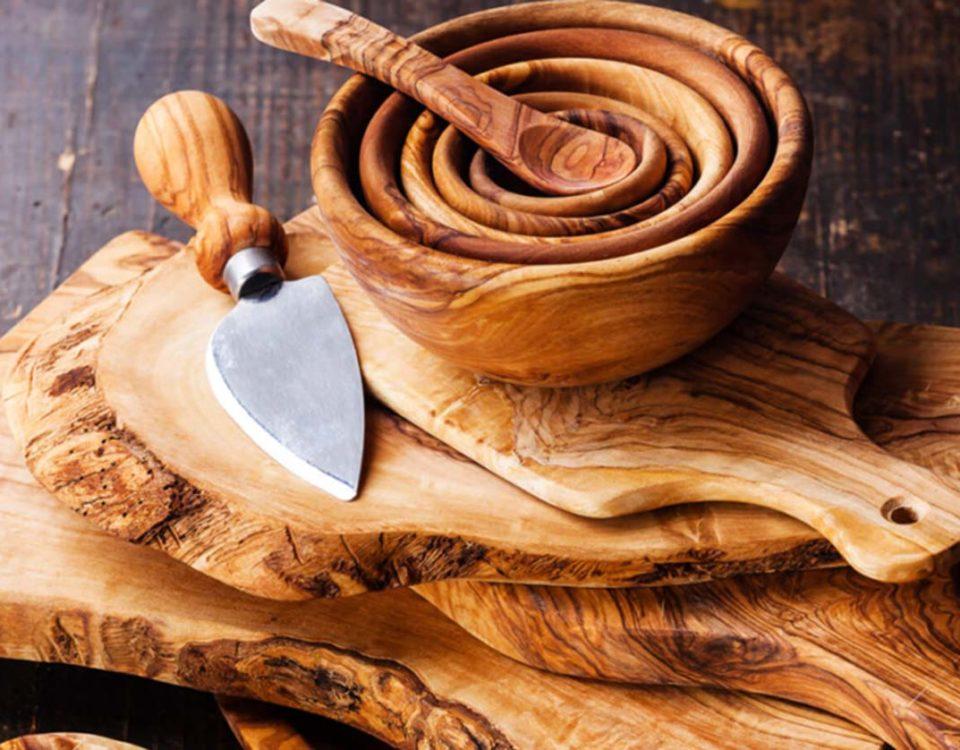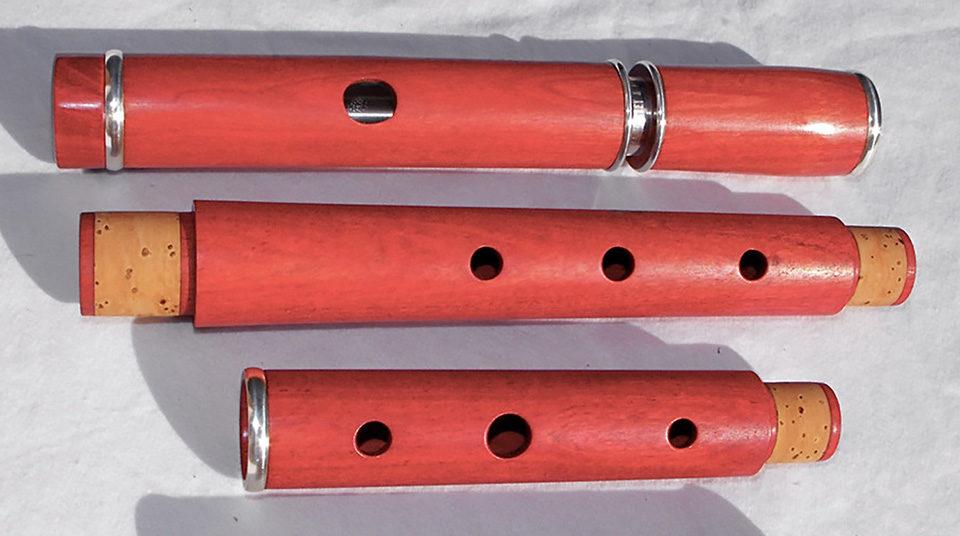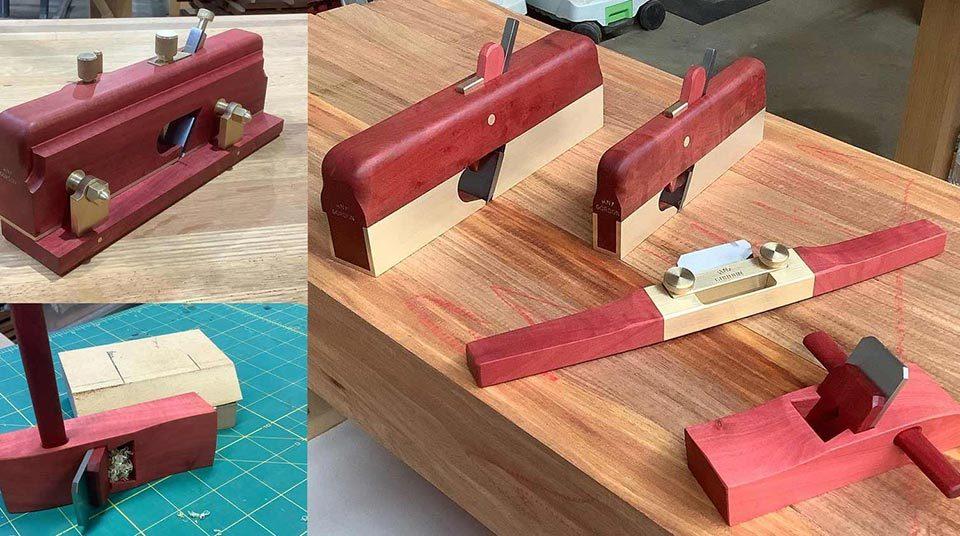
ProSono is the leading supplier of high-quality African tonewood for woodwind instruments. For 25 years, we have specialised in sourcing, processing and shipping the best quality tonewoods for use in manufacturing classical and folk instruments.

Characteristics of the best tonewoods
Over time, people have made instruments out of a highly diverse range of materials, including whatever wood is locally available. To produce the best and most durable instruments, however, wood needs certain characteristics.

Tonewood for woodwinds should have these properties:
- low porosity
More porous woods, such as ebony, allow the penetration of saliva, which is acidic, into the wood. This can result in splitting. - stability
Stability depends on the cellular structure of the wood, as well as on how the wood is processed. For example, it should be dried slowly, at a suitable temperature and humidity. - acoustic properties
Structural characteristics like the stiffness, elasticity and density of wood affect the resonance of the sound that’s produced and the extent to which the wood absorbs, or “damps”, sound energy. For woodwinds, certain hardwood species offer the best resonance. - sustainability
Choosing sustainable, ethically sourced tonewood helps protect the environment, vulnerable local communities and the future of wooden instrument manufacturing. - workability
Tonewood needs sufficient oil content so it can be worked by hand or on a lathe with minimal risk of cracking or splintering. Also, wood with comparatively straight grain offers better support for boring and turning.
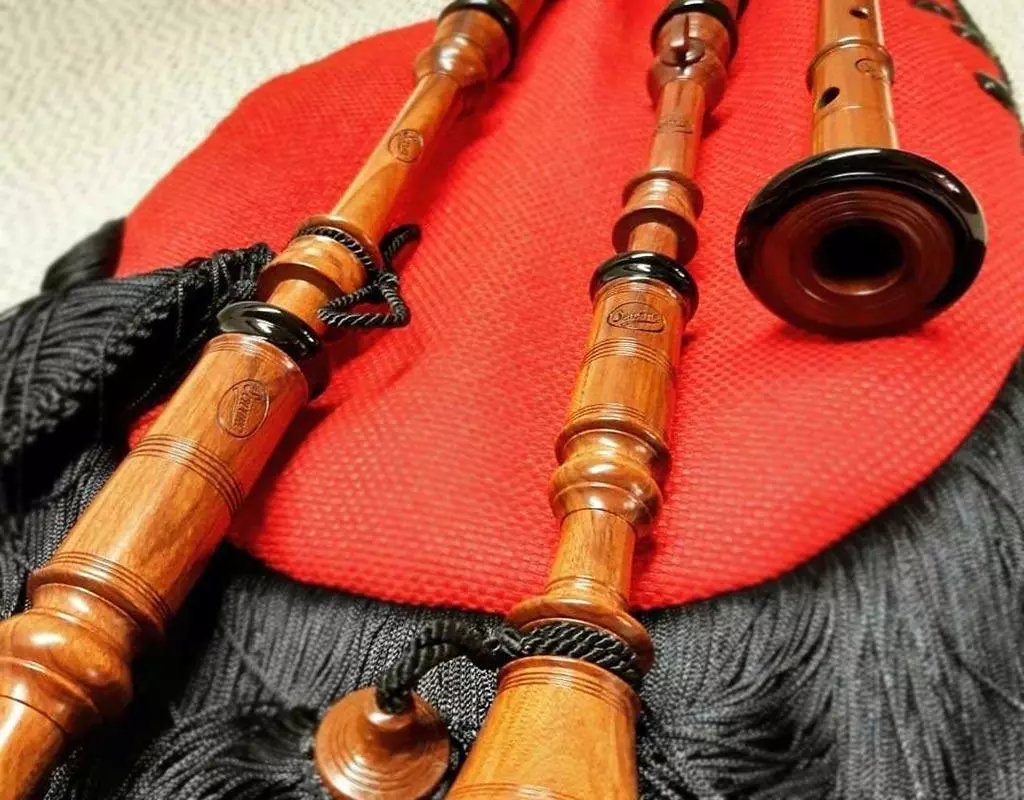
The most popular tonewoods for woodwinds
Grenadilla (Dalbergia melanoxylon), also known as African blackwood, is a traditional favourite with classical woodwind instrument makers. However, it is now listed by CITES as endangered. It is increasingly difficult to obtain, at least in pieces of sufficient quality and size for making instruments.
As the industry transitions away from grenadilla, certain hardwoods are emerging as the best alternatives. Leading the way, particularly for clarinet, are African mopane and African leadwood – renamed for all musical applications as the elegant wood.

Depending on the instrument, some other examples of popular tonewoods for woodwinds are maple, various species of boxwood, kingwood, tulipwood, cocobolo, Macassar ebony, bubinga, red chacate, ash, black walnut, African olive wood, western red cedar, redwood, black cherry, red alder and red or pink ivory. Woods like cocuswood and rosewood are also prized but are now in extremely short supply.

Our favourite African tonewoods for woodwinds
Certain African hardwoods are particularly suitable as tonewood for woodwind instruments. These are our favourites.
Mopane
Several leading manufacturers have recognised mopane as the future of woodwind instruments. It offers acoustic properties and stability that equal those of grenadilla, along with a special warmth in both tone and colouring.

Elegant wood/African leadwood
Elegant wood, also known as African leadwood, is another alternative to African blackwood. It offers excellent musical qualities with low porosity and good stability.

The wood is dark and, after sanding and oiling, has a black lustre that’s similar to that of grenadilla.

Pink or red ivory
Pink or red ivory is used with great success for instruments such as oboes, clarinets and flutes. Its high oil content means it doesn’t split easily and works well on the lathe and with the chisel.

This hardwood is prized for its high density, striking pink to red colour and exceptionally smooth finish.

African olive
Also known as wild olive or olienhout, African olive offers beautiful grain patterns and a golden-brown colour.

It’s a hard, non-porous wood that works well on the lathe and with the chisel. It is used to make unique flutes and even certain historic and baroque instruments.
How we guarantee the quality of our African tonewoods
Since 1999, we have been providing ethically sourced African hardwoods of the highest possible quality to instruments makers and other artisans.
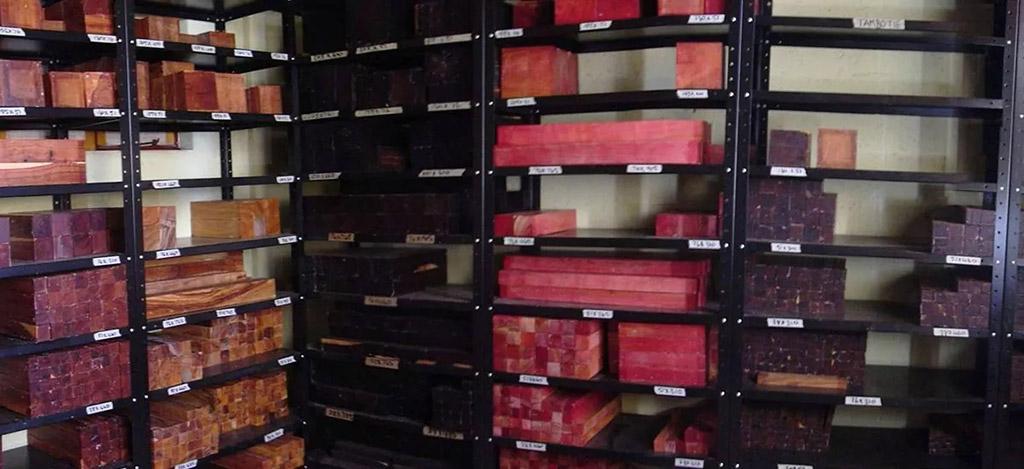
Among the keys to top-quality tonewood for woodwinds are:
- meticulous selection, before and after harvesting
- direct oversight of teams in the field
- processing by expert wood technologists and machinists
- very slow air-drying at optimal temperature and humidity
- rigorous quality control at every step.
We ship African tonewood for woodwind instruments to countries around the world. Please see reviews from our customers for testimonials. If you have any queries or to discuss your tonewood needs, contact us online. Alternatively, WhatsApp or call us on (Int) +2782 652 0747.

